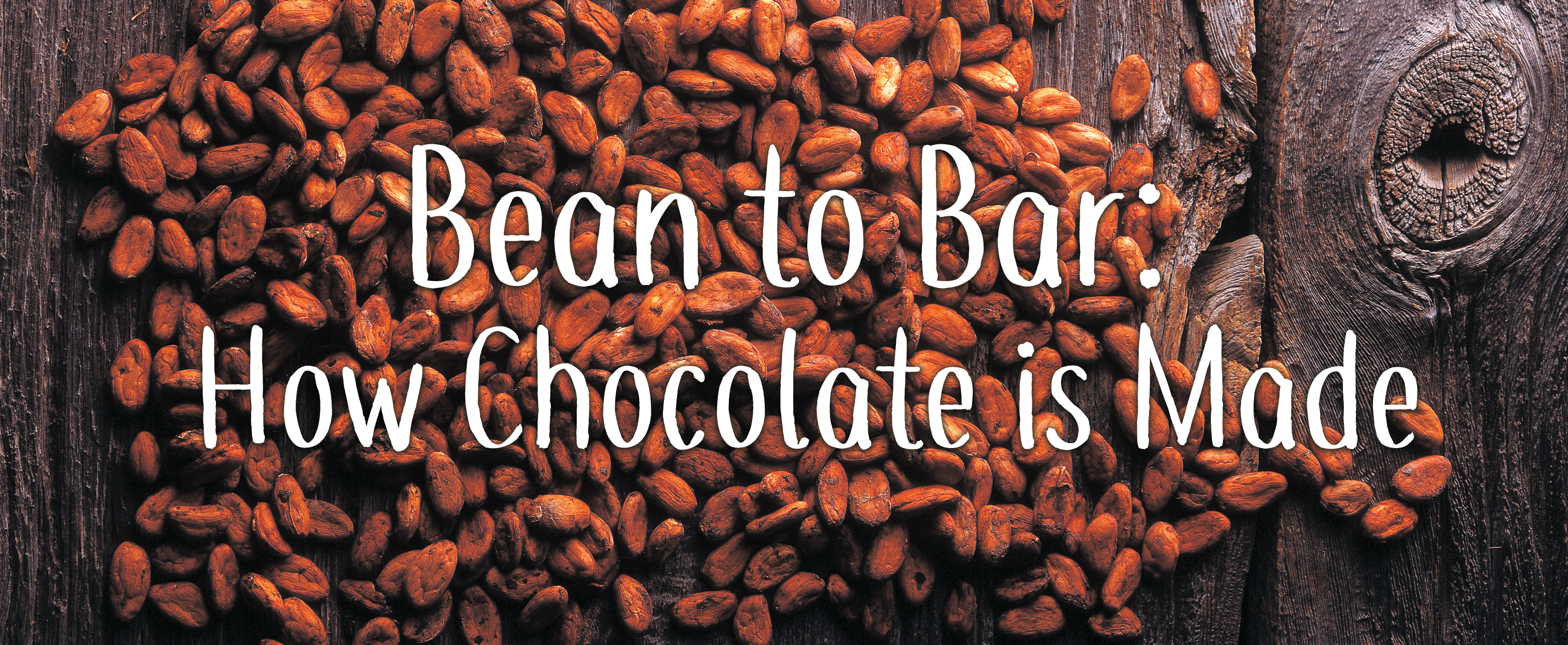
Bean to Bar: How Chocolate is Made
Chocolate has been enjoyed since the ancient Aztec civilization was thriving, and through its long history, how we make it hasn’t changed much! The process is always being refined and each chocolatier has their own unique methods, of course, but the six major steps of creating chocolate have persisted for hundreds of years:
1. Harvesting the Beans
Cacao trees originate from the tropical regions of South & Central America and are now grown commercially in southern and western regions of Africa as well. The cacao pods, which contain the cacao or cocoa bean, must be harvested by hand to ensure only the mature pods are cut from the tree. Since cacao trees produce new buds on a continuous basis, harvesters have to be careful not to damage the immature pods, stem, or flower buds when collecting mature pods. Once the pods are harvested, they are broken open to reveal the beans and pulp.
2. Fermentation
Harvesters scoop the cacao beans and pulp from the pod and either piled together and covered with banana leaves or put into a lidded box. The pulp ferments naturally, with only mild assistance from workers who mix the beans and pulp to introduce more oxygen. The fermentation process generates heat, which develops the cocoa flavor of the beans.
3. Drying
After up to eight days of fermentation, the cacao beans have a high moisture content and need to be dried for shipping and processing. Beans are typically air-dried or sun-dried and less often dried with a wood fire, since that method produces an undesired smoky flavor.
4. Roasting
The cacao beans are then delivered to chocolate manufacturers where they are inspected and tested for quality assurance and then roasted for anywhere from 10 to 35 minutes, depending on the manufacturer’s preference and desired flavor outcome.
5. Refining
While roasting, the cacao beans’ shells crack and are afterwards separated from the bean kernel, resulting in what is called cocoa nibs. This is where the beans begin to shape into something we recognize as chocolate. The nibs are ground into cocoa liquor (or “cocoa mass”), which the manufacturer refines further until the cocoa liquor reaches the desired consistency. Cocoa butter or solids can be either removed or added, depending on what type of chocolate is being made. This is also when dairy is added to create milk chocolate or when other flavors or flavor enhancers such as sugar and vanilla.
6. Tempering and Molding the Bar
Finally, the refined cocoa is ready to become the chocolate we know and love! First it is tempered, which means it is carefully melted at the appropriate temperatures so it does not burn or bloom. Then, it can be molded into bars or move onto another production process to become other types of chocolates and candies!
Each piece of chocolate goes through a long and arduous process to arrive in your hands, and at ROYCE’ Chocolate, we wouldn’t have it any other way! When you try one of our Japanese-style luxury chocolates, you can taste the love and care put into every step of the chocolate-making process; it’s what makes ROYCE’ Chocolate one of the best in the USA!


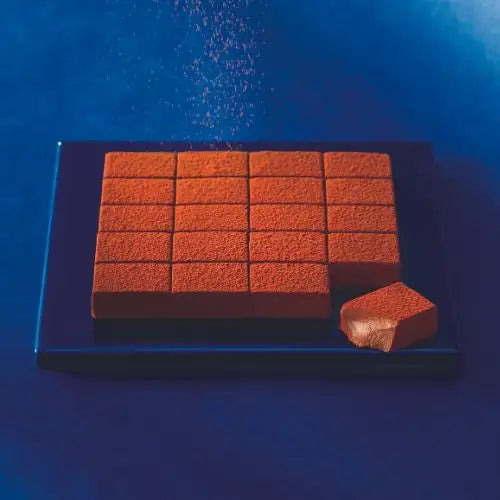
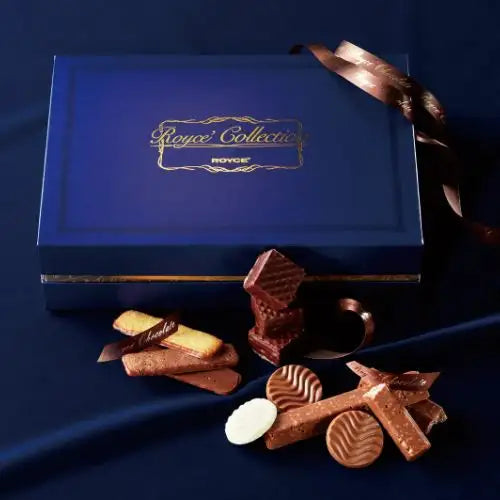
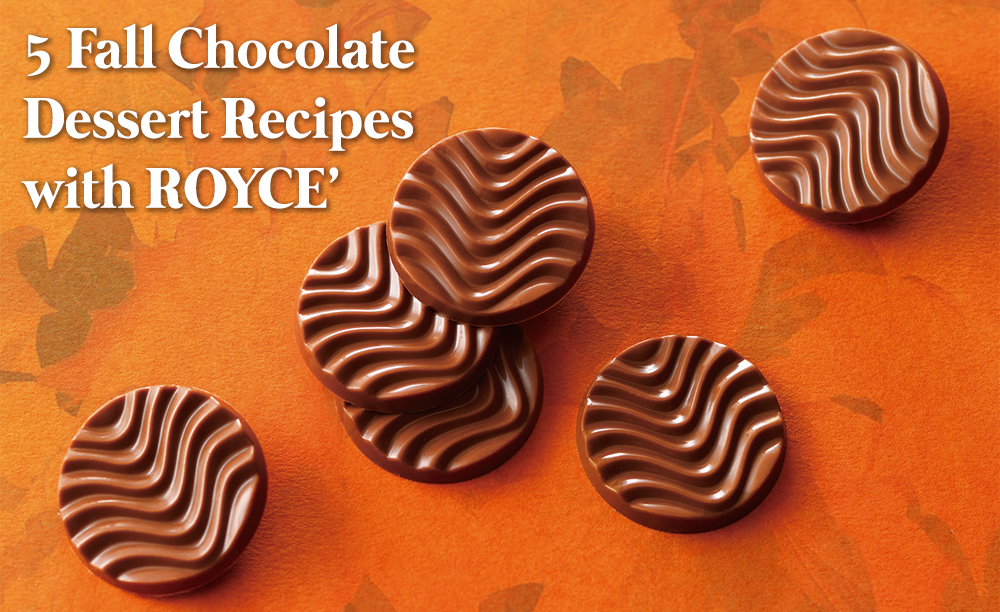
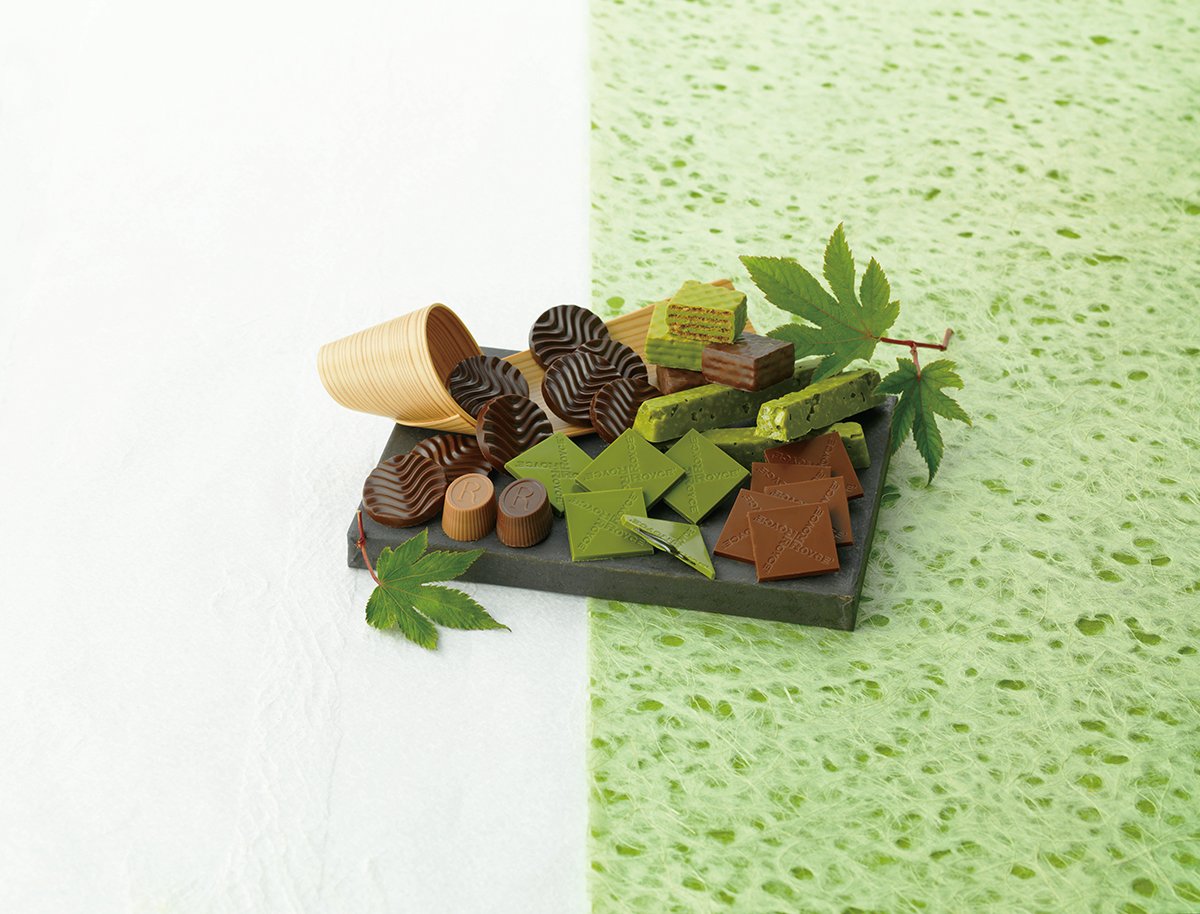
Leave a comment
This site is protected by hCaptcha and the hCaptcha Privacy Policy and Terms of Service apply.